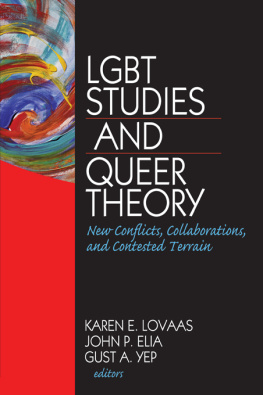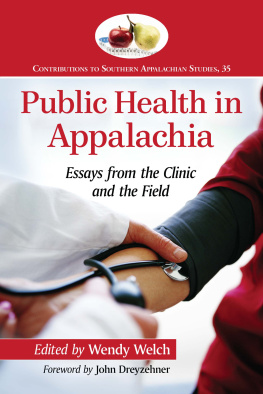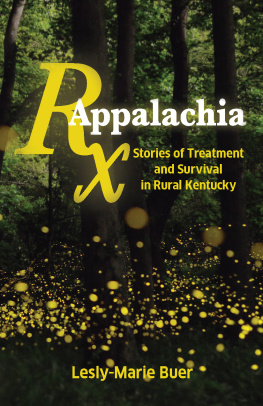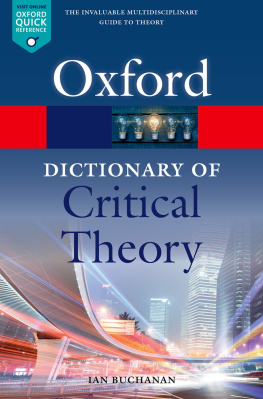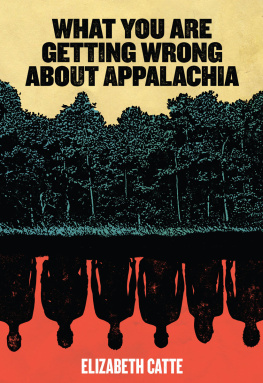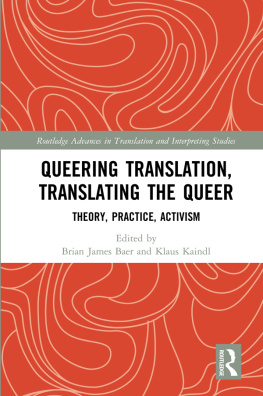Contents
Page List
Guide

I am tired of vacuous elegies and reductive, Red State prognoses that assume there is something rancid or hopeless about places that are hard to find on a map. Such accounts leave little to no room for queering lives and possibilities. That is why I am so thankful that trans activist and scholar Z. Zane McNeill brought together fifteen scholars, artists, and activists to share their nuanced, vibrant take on all things Appalachian and queer. Readers will appreciate the honest, raw call-outs of racism, gendered violence, and environmental injustices that simultaneously reclaim indigeneity, Blackness, non-binary genders, and queerness as local in origin and equipped to build new queer archives that push and gather us together. This collection is a must-read for activists and scholars seeking a fuller sense of queerness as a political enterprise always becoming and undone, shaped by an insistence that yall matterI can hardly think of a more pressing project for our times.
Mary L. Gray, 2020 MacArthur Fellow, author and editor of dozens of articles and several books, including In Your Face: Stories from the Lives of Queer Youth and Out in the Country: Youth, Media, and Queer Visibility in Rural America
These deeply personal and theoretically informed essays explore the fight for social justice and inclusivity in Appalachia through the intersections of environmental action, LGBTQIA+ representational politics, anti-racism, and movements for disability justice. This Appalachia is inhabited by a queer temporality and geography, where gardening lore teaches us that seeds dance into plants in their own time, not according to a straightedged neoliberal discipline.
Rebecca Scott, author of Removing Mountains: Extracting Nature and Identity in the Appalachian Coalfields
Weaving together stories of intersectional queer life with questions of place, politics, and belonging, Yall Means All: The Emerging Voices Queering Appalachia offers readers a nuanced and necessary portrait of Appalachia. These essays are as raw and vulnerable as they are smart and context-driven, each one offering richer understanding of the region through powerful personal testimony. A much-needed remedy to the reactionary views of Appalachia we get from mainstream presses and corporate news, this book is balm.
Raechel Anne Jolie, author of Rust Belt Femme
This collection adds important voices to the chorus rising from the region, singing their own songs and telling their own stories. Playing with genre, form, subject, and positionality, the text offers a beautifully messy vision of a beautifully messy place. The resistance to category serves us all, pushing boundaries and reminding us of the superficialities of most boundaries that shape us. The inclusion of voices unused to existing in the same volumesof gerontologists and artists and farmers and activists and folklorists and morecreates an overwhelming sense of complexity. That complexity is precisely what we need in mind when we try to write about Appalachia, or when we try to write about queerness. This collection is disruptive and unsettlingin the very best ways. Just when we think we understand queerness in Appalachia, it is troubled and turned inside out again, leaving us uncertain and inspired to keep asking questions.
Meredith McCarroll, author of Unwhite: Appalachia, Race, and Film and coeditor of Appalachian Reckoning: A Region Responds to Hillbilly Elegy
This exuberant collection tears away falsehoods, challenges hierarchies, and presents memoir and scholarship on new ways of understanding the Queer past and present of Appalachia. Resisting conformity, hatred, and oppression in Appalachia is to resist these nationwide. These writers demonstrate not only that Appalachia is central to LGBTQIA+ activism, but also that queerness in Appalachia is central to the wider movements for dignity, equity, and social justice in the United States.
Steven Stoll, author of Ramp Hollow: The Ordeal of Appalachia
Too often writers and artists from Appalachia find themselves on the defensive, responding to the many ways that popular media misrepresents the region and erases complexities of gender, race, and sexuality. Not so in Yall Means All: The Emerging Voices Queering Appalachia. As members of radical queer communities, the authors imagine the past, present, and future in Appalachia with sharp analysis and glorious storytelling. They define Appalachia on their own terms, with theoretical ferment, honesty, and heart.
Jessica Wilkerson, associate professor and Stuart and Joyce Robbins Distinguished Chair in History, West Virginia University
Appalachia is often painted with a broad stroke of a dominant narrative. Yall Means All: The Emerging Voices Queering Appalachia has reworked this narrative to show these hollers aint all the same. This collection is here to amplify the queer voices and stories bouncing off of the mountains to bring them onto the page. Overlooked and overshadowed by the dominant narrative, this collection works to reconnect queerness with the region through signposts of identities, marginalization, and trauma. Its complicated, for sure, but this collection shows how stereotypes of the region are not only about image but can do real damage. Because families, identities, roots, language, history, and policy are so marred in the past and running deep in the roots of the region, these essays feature a more rhizomatic approach to these cultural concepts. In Crafting Queer Histories of Technology, Hannah Conways says, There are always many ways to tell a story, to tell a history. This collection works to do just that.
Tijah Bumgarner, filmmaker
The works in Yall Means All: The Emerging Voices Queering Appalachia are thoughtful, well-researched, emotionally resonant, and beautifully made, all of which balances their sometimes harrowing imagery, and the hard truths they must share about queer experiences in a region that has not always treated the LGBTQIA+ community with the care it deserves. Z. Zane McNeill has done a service for the public good in bringing together the eclectic perspectives of artists and makers from across a broad field of scholars, creative writers, photographers, naturalists, and more. I was continually moved by the love I felt expressed for Appalachia in this collection, a love soldered and made stronger by pain and resilience, by healing and kindness. I really cannot imagine an open-hearted reader not returning that feeling of love toward this book, built as it is on hope, generosity, and the recognition that every voice belongs in the chorus.
Jesse Graves, professor of English and Poet in Residence, East Tennessee State University
This collection provides another space for queer-Appalachian storytelling and analysis. The chapters address Appalachian queer and racial activism, archival histories, and other queer histories including crip/queer theories and histories. Many of these chapters use personal narratives to drive home their points. Several use academic theories to demonstrate the complexities of Appalachian queerness and how this scholarship fits within the academy. This collection is powerful and full of good intentions. We need loud voices such as these to empower those who may be afraid or unable to speak out. Tennessee Jones quotes Jayne Anne Phillips, who says This Aint the South . Its the goddamn past; however, this collection shows that Appalachia has an incredibly bright and powerful queer future.
Travis Rountree, assistant professor of English, Western Carolina University
An Appalachian kaleidoscope of queer voices,


